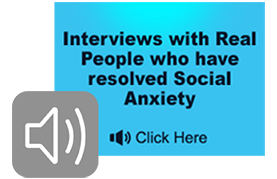Jonathan Berent, L.C.S.W., author of “Beyond Shyness” (Simon & Schuster) and “Work Makes Me Nervous” (Wiley) has identified technology compulsion as the gateway to an alternate reality for individuals of all ages afflicted with social anxiety and avoidant personality.
Berent explains “the fact that texting has replaced talking as the most common form of communication characterizes a societal shutdown of the neural pathways required for verbal communication specifically, and social skills in general. Society’s massive and rapidly developing technology dependence is enabling a dramatic increase in selective mutism, which is a variation of obsessive compulsive disorder and a speaking phobia. Using technology to communicate rather than talking has become a way of life for many”.
Current statistics put selective mutism as occurring in 7 out of 1000 children. Berent adds “I have seen countless adolescents and adults with this disorder. In fact many of my patients with public speaking anxiety, which is the world’s number one phobia, identify selective mutism as the driving force of their performance anxiety. The most common phrase that I have heard from thousands of patients in forty years of practice is “I have nothing to say” or “I don’t know what to say”.”
Individuals with social anxiety are the most at risk for phone compulsion because of their tendency to avoid direct human interaction. The degree of interactive avoidance is an important diagnostic for measuring the degree of the overall anxiety problem. Over-dependence on technology sustains avoidance. Social anxiety is currently the most common anxiety disorder. It is driven by performance dynamics. Given society’s relentless pursuit for productivity and its technology dependence, social anxiety disorder has already reached epidemic proportions.
For insight into the connection between avoidance and technology consider the following case examples which are very common.
“Rob” age 26 lives at home with his parents. He left college after a few days because of social anxiety. While he has had a few jobs he has been unemployed most of the time. He stays up most of the night and sleeps most of the day. He has not had a “girlfriend” since junior high school. He does not have a social life. He spends over 70 hours per week gaming online. One of his biggest fears is having a conversation with someone outside of his family. He has no initiative for his mental health. He has no ambition. All he cares about is his online world or alternative universe!
“Janice” age 15 experienced a panic attack when her parents took away her I-Phone. Her FMO (fear of missing out) turned into a compulsion to always be on her phone at the expenses of her school work and other responsibilities. Not having her phone, on which most of her social life was based, caused her to be depressed.
Al, age 40, was human resources professional. For months he never verbally participated in his weekly staff meeting because he believed he had nothing to offer. He was eventually fired. In social situations his anxiety was so high that he often made believe he was talking on his phone to avoid conversion.
A free clinical library with rare interviews with individuals and families who have achieved life-changing results with The Berent Method is available.
Jonathan Berent, L.C.S.W., A.C.S.W., has pioneered psychotherapy for social anxiety and has worked with thousands of individuals since 1978. His website www.socialanxiety.com has had over three million visitors.




